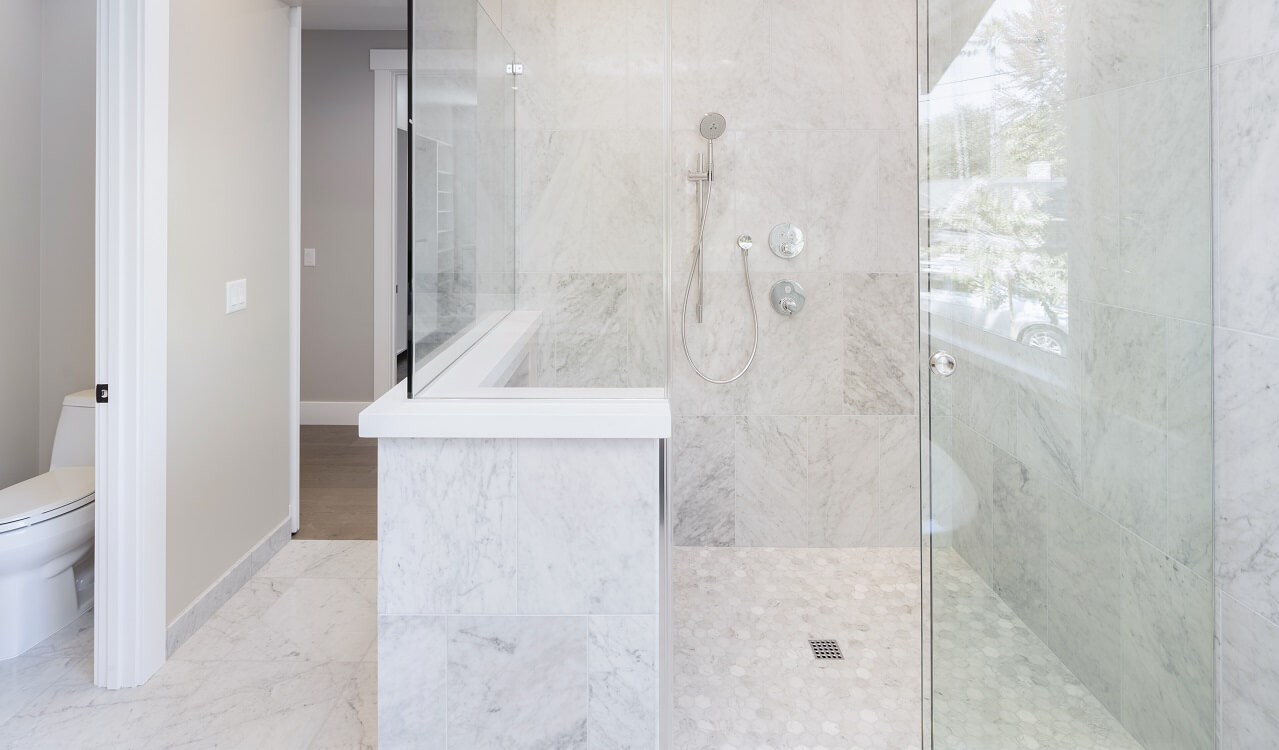
© coralimages – stock.adobe.com.
The best tile for shower floors depends on your budget, the size of the space, and the aesthetic you want. In the U.S., the most popular shower floor tiles include porcelain, ceramic, glass, travertine and pebble. Use our guide to find a tile type that’s durable, fits your budget and is reasonably low maintenance.
On This Page:
- How to Choose the Best Tile for Shower Floors
- Best Type of Tile for Shower Floors
- Shower Flooring Materials Compared
How to Choose the Best Tile for Shower Floors
When you’re thinking of remodeling your bathroom, the shower floor options are extensive. Tiles are available in hundreds of designs, sizes and material combinations, so it’s important that you know enough to make the right choice. Consider the following:
- Safety: Adequate texture is necessary to prevent slipping
- Size: Use small tiles for less textured surfaces to increase safety
- Cost: Material and installation costs vary widely
- Style: Shower floor tiles should complement wall tiles and bathroom theme
- Maintenance: Some materials require less maintenance than others
- Durability: Tiles should be durable enough to withstand regular use and water exposure
Best Way to Tile a Shower Floor
Hire a bathroom remodeling pro near you to install your shower and do all the tile work. It’s always the best solution when dealing with wet environments. You’ll avoid the risk of water damage, repairs and wasted time.
Your professional will most likely:
- Carry a license and insurance, protecting you from mistakes
- Use special sealers
- Use epoxy or acrylic grouts that stand up to water better than standard grout
- Ensure all water drains away after each shower
Ready to start your shower tile installation?
Find ProsBest Type of Tile for Shower Floors
With so many tile options available, it’s impossible to choose the single best type of tile. However, it’s also easy to choose the wrong type. Shower floor tiles must provide good traction, be easy to clean and maintain and be durable enough not to scratch, crack or show damage easily. Here are some popular shower tile options to help you choose the right tiles for your shower floor.
Pebble
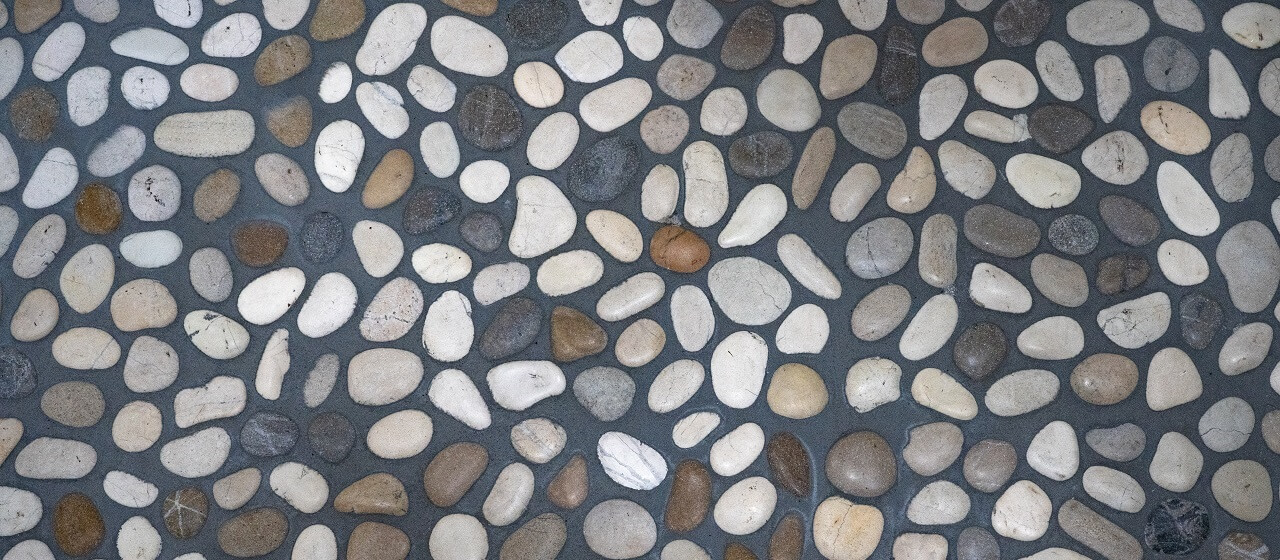
© Corri Seizinger – stock.adobe.com.
Pebble tiles bring a natural, spa-like quality to your bathroom. Pebbles typically arrive adhered to a mesh tile backing, so the design is set and the stones are even.
Pros:
- Excellent traction
- Unique natural design
- Flat-surface pebbles are comfortable
Cons:
- Expensive, time-consuming, labor-intensive installation
- Requires lots of cleaning and maintenance
- Lots of grout can harbor bacteria and mold
Cost: Materials cost between $30 and $40 per square foot. Labor costs $12 to $30 per square foot.
Travertine
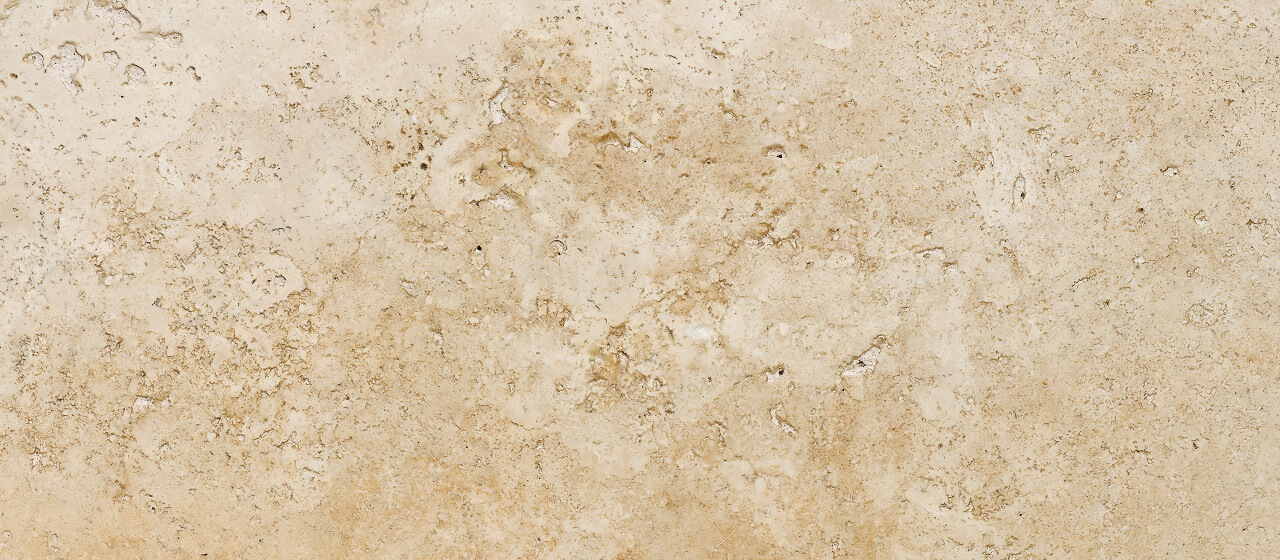
© Christine – stock.adobe.com.
Travertine is a beautiful natural stone that is a popular shower flooring option.
Pros:
- Tumbled travertine is non-slip
- Has a natural, weathered look
- Hardwearing
Cons:
- Porous: Requires regular sealing
- Not suitable for DIY installation
- Expensive
Cost: Materials and labor cost $3 to $30 per square foot.
Glass
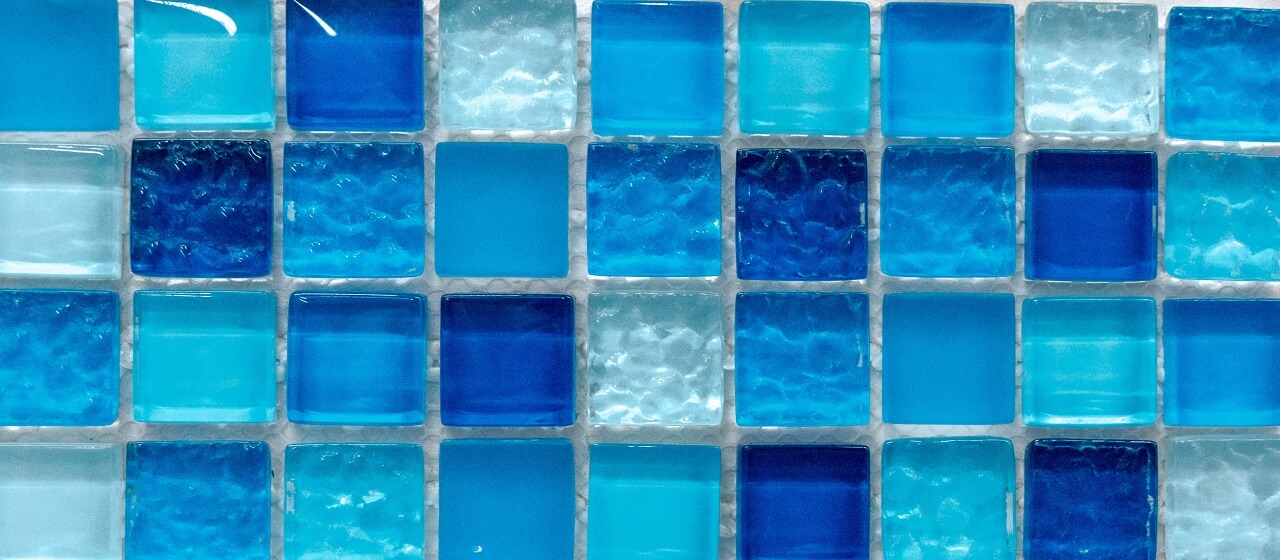
© Ruslan Gilmanshin – stock.adobe.com.
Glass is a beautiful shower flooring material and small glass tiles can be crafted into unique designs.
Pros:
- Impervious to staining
- Easy to clean
- Small mosaic-style designs give good grip
Cons:
- Time-consuming and expensive installation
- Larger tiles and designs lacking adequate grout lines are slippery
- Susceptible to cracks and scratches
Cost: Materials cost between $10 and $30 per square foot. Labor costs $9 to $25 per square foot.
Porcelain
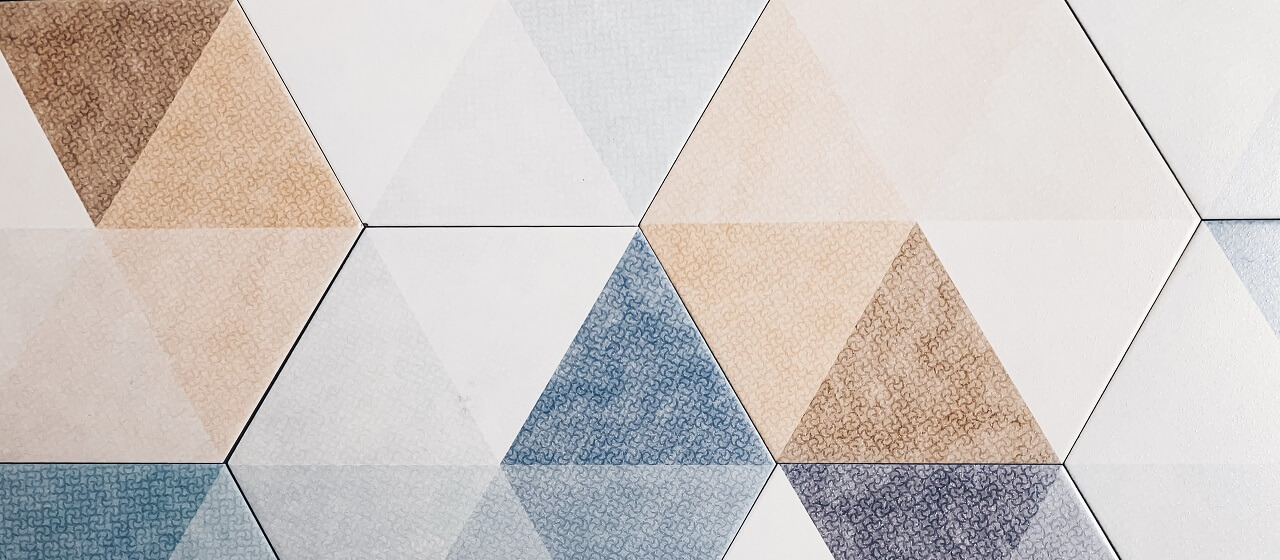
© Алена Ган – stock.adobe.com.
Porcelain tile is one of the most popular shower tile options. It works equally well in traditional or contemporary spaces.
Pros:
- Comparatively inexpensive
- Small tiles have enough grout lines to give good grip
- Non-porous and tough: Impervious to water damage and does not stain or scratch
Cons:
- Larger tiles are slippery
- Not suitable for DIY installation
- Heavy. Consult with your pro to ensure the structure is able to accommodate the heavy load.
Cost: Materials cost between $3 and $10 per square foot. Labor costs $4 to $25 per square foot.
Ceramic
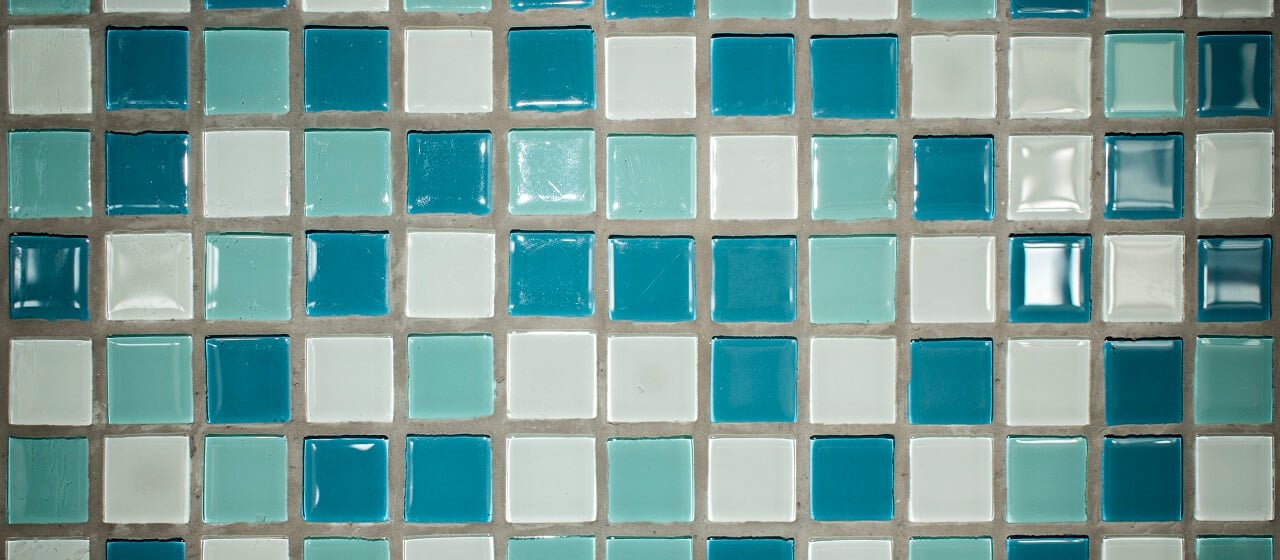
© Ruslan Gilmanshin – Getty Images
Ceramic tiles are another popular bathroom tiling choice due to their cost-effectiveness and endless style options.
Pros:
- Inexpensive
- Easy to clean
- Wide choice of color, texture and design
Cons:
- Susceptible to glaze cracking
- Requires resealing if glaze incurs damage
- Not as strong as porcelain
Cost: Installation costs of ceramic tile vary greatly. Materials cost between $0.50 and $50 per square foot. Labor costs $4 to $25 per square foot.
Ready to start your shower tile installation?
Find ProsGranite
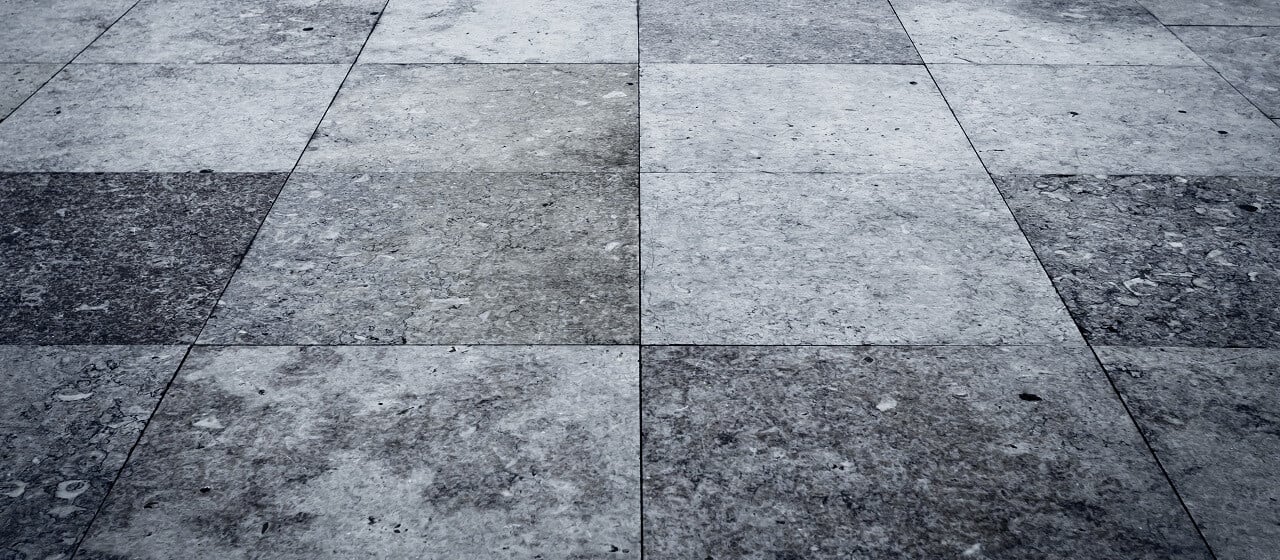
© R. Tsubin – Getty Images
Granite tiles bring all the elegance of marble without the worry of stains and scratches.
Pros:
- Small, textured and tumbled granite tiles give good grip
- Extremely durable
- Does not stain or suffer water damage
Cons:
- Not suitable for DIY installation
- Requires special cleaners
- Heavy – talk to a pro before installing
Cost: Materials cost between $10 and $50 per square foot. Labor costs $7 to $20 per square foot.
Limestone
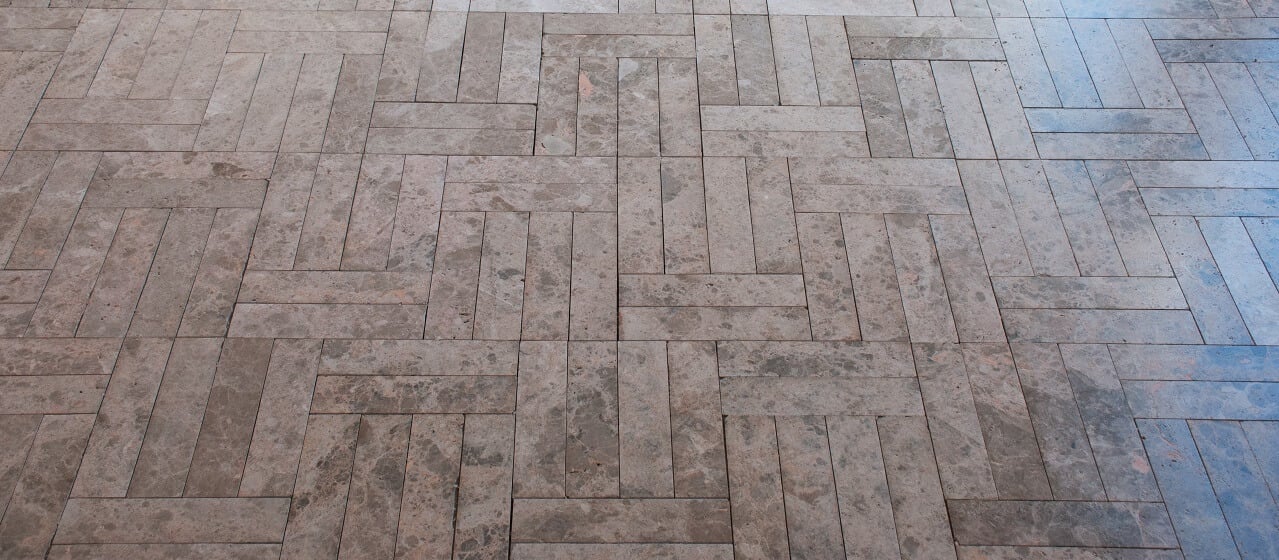
© Eve Livesey – Getty Images
Limestone tiles have a light, sandy, natural look that works well in modern or artfully rustic bathrooms.
Pros:
- Small tiles and those with honed finishes are textured for good grip
- Can be restored by regrinding and sealing
- Affordable compared to other natural stone tiles
Cons:
- Requires regular resealing
- Vulnerable to acidity: Requires pH-neutral cleaning products
- Only Class III limestone is suitable for shower floors because of the low absorption rate
Cost: Materials cost between $5 and $30 per square foot. Labor costs $8 to $20 per square foot.
Cork
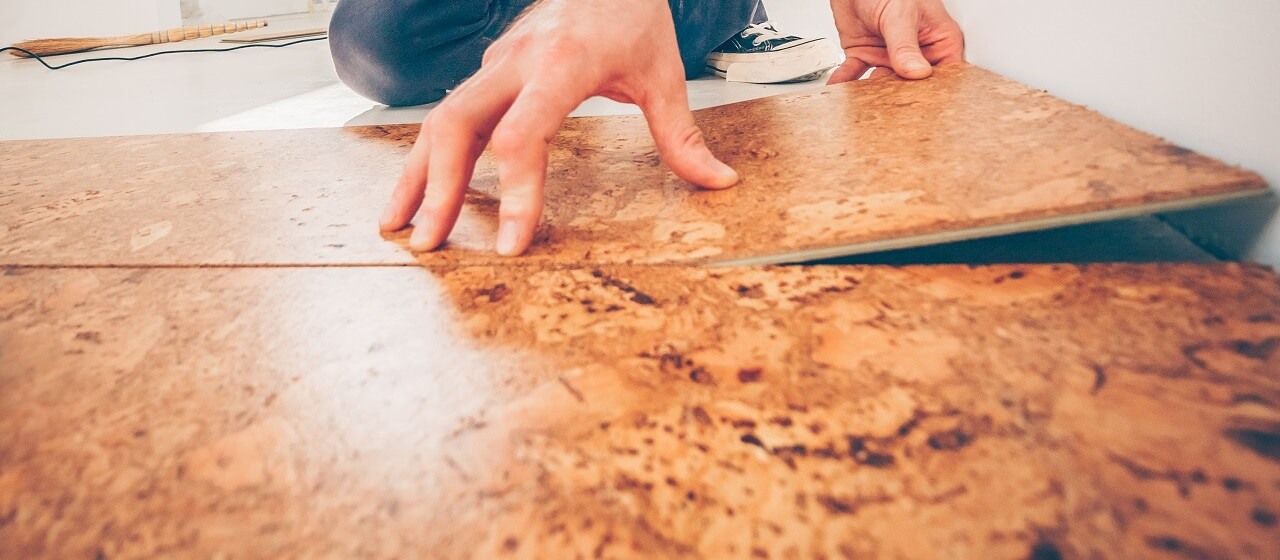
© andrey gonchar – stock.adobe.com.
Cork can be used to create unique designs in the bathroom and is a safe, soft surface.
Pros:
- Soft and comfortable to walk on
- Naturally anti-microbial and anti-fungal
- Inexpensive
Cons:
- Needs regular resealing
- Easy to chip, scratch or dent
- Susceptible to water damage if not adequately sealed
Cost: Cork flooring costs $5 to $15 per square foot installed.
Slate
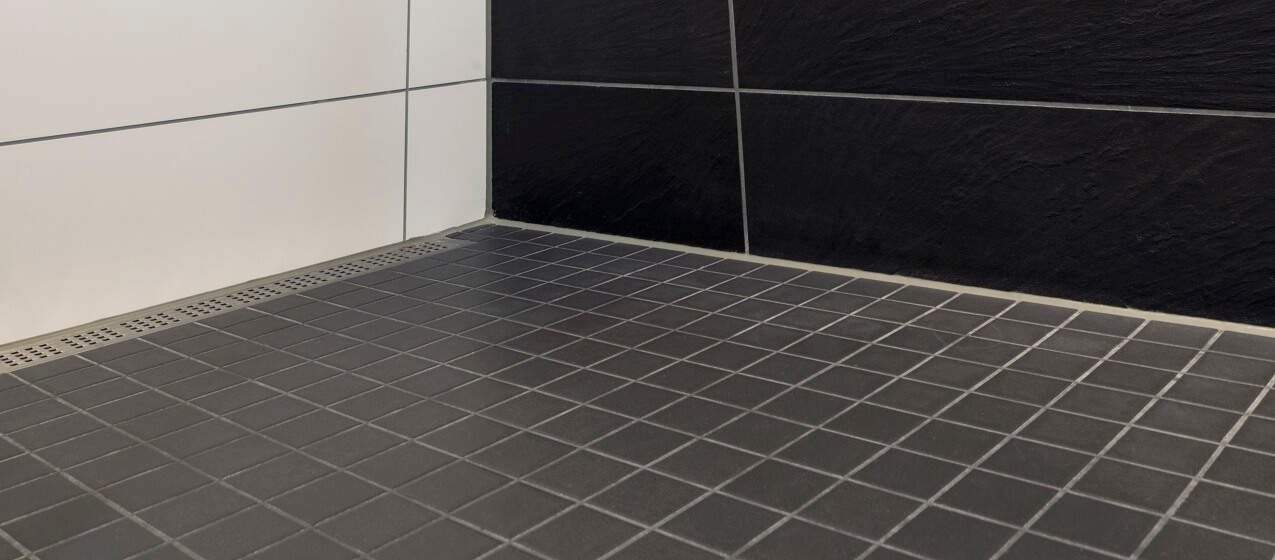
© georgeclerk – Getty Images
Slate flooring adds a distinctive look to your bathroom and is commonly used in floor-to-ceiling shower installations for a cohesive appearance.
Pros:
- Naturally slip-resistant
- Stain-resistant
- Easy to clean
Cons:
- Limited color variations
- High-quality slate is expensive
- Low-end slate is prone to stains and water damage
Cost: Slate tile installation costs $9 to $40 per square foot, including materials and labor.
Mosaic Tile
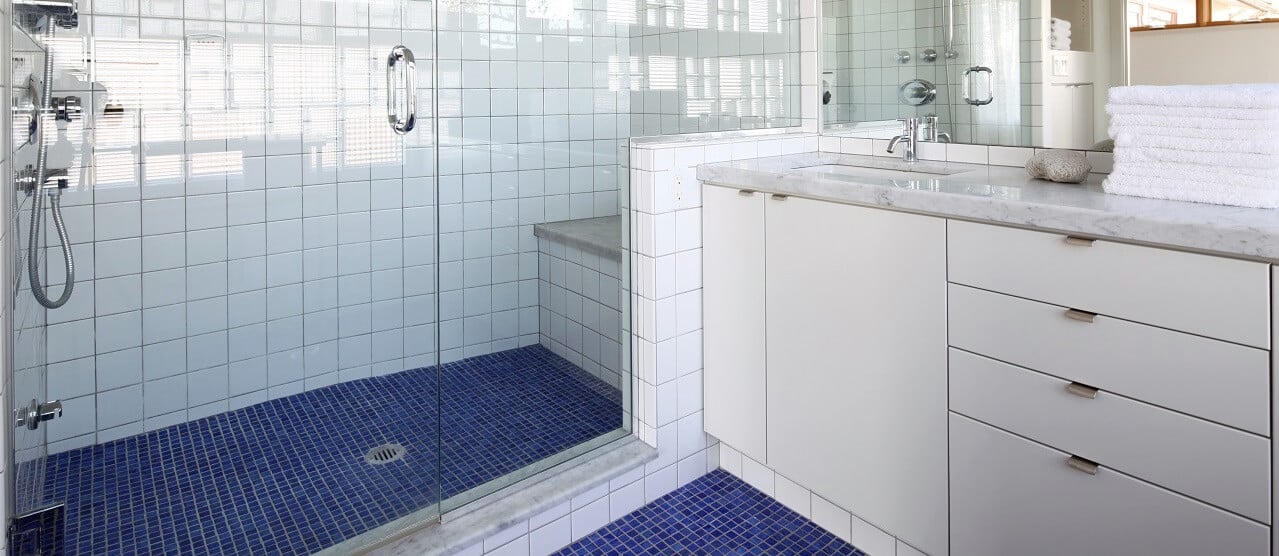
© Lori Andrews – Getty Images
Mosaic tiles are available in endless material, color, size and design options so you can create a truly unique shower floor.
Pros:
- Lots of grout lines and texture for better grip
- Glass mosaic reflects light and creates the illusion of extra space
- Easy to clean and maintain
Cons:
- Expensive, time-consuming installation
- Some materials can still be slippery when wet if they lack adequate texture
- Lots of grout can harbor bacteria and mold
Cost: Materials cost between $5 and $7 per square foot. Labor costs $12 to $20 per square foot.
Ready to start your shower tile installation?
Find ProsShower Flooring Materials Compared
Choose tiles that give good grip, are resistant to water damage and are easy to clean. Remember to account for how much ongoing maintenance, refinishing and resealing you’ll need to do. If you still can’t decide which tile is the best for your bathroom, contact a local bathroom tile professional who can assess your shower area and walk you through your options.
Best Nonslip Tile for Shower Floors
Pebbles, slate, cork and travertine are all contenders for the best slip-resistant shower floor tiles. All four are naturally textured to give you a good grip. Cork is prone to water damage and requires regular sealing, but provides a soft, safe surface. Pebbles, slate and travertine are not the most budget-friendly options, but they are extremely long-lasting and will add value to your home.
Best Tile for Shower Walls and Floor
The top choice for your walls isn’t always the same as the floor. While you can use the same throughout, consider that:
Floors need grip. The smaller the tile, the more grip available.
Walls don’t require grip. This means you can use larger ones that reduce grout lines. Less grout means easier cleaning and sealing.
You can choose a floor-to-ceiling installation of pebbles, glass, mosaic or stone tiles or choose one for your shower pan and another for the walls and ceiling.
Best Tile for Shower Floor with Hard Water
Porcelain tile is a solid choice for hard water areas. But you’ll also need to choose the right grout, such as an epoxy grout that will minimize hard water deposit build-up.
Best Budget-Friendly Tile for Shower Floors
Ceramic tile is a good choice for installing a shower floor on a budget. It’s comparatively inexpensive and easy to clean and maintain. If sealed properly, it doesn’t absorb water, so long-term maintenance costs are also minimal.
Wondering How Much Tile You Need?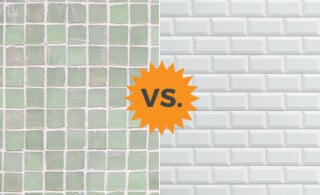 Porcelain vs. Ceramic Tiles
Porcelain vs. Ceramic Tiles 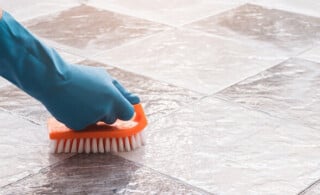 How To Clean Tile Floors
How To Clean Tile Floors 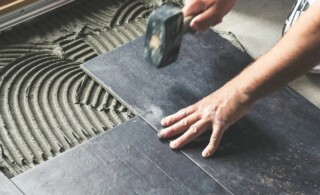 Cheap Tile Flooring Buying & Installation Guide
Cheap Tile Flooring Buying & Installation Guide 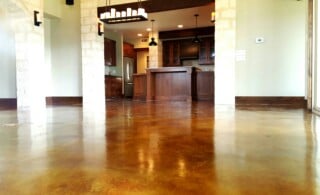 Concrete Flooring – Solid as a Rock
Concrete Flooring – Solid as a Rock 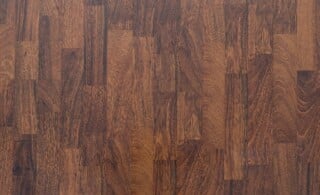 Laminate Flooring vs. Hardwood: What’s the Difference?
Laminate Flooring vs. Hardwood: What’s the Difference? 

Are You Familiar With This Topic? Share Your Experience.